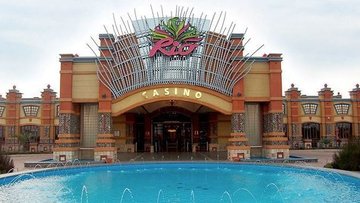South African casinos lose money due to FX rates

There are plenty of reasons to visit South Africa ranging from the landscapes, wildlife to surfing and much more. While there, tourists also visit the various casinos around the country, which offer the appeal of any Vegas casino along with an African twist. Nowadays, according to https://www.casinoreviewer.org/ South African casinos have even become a major attraction to travellers on both business and leisure.
However, recent changes in FX rates have deterred tourists in the country, and the casinos have lost their income in the process. Besides the income casinos gain from foreign tourists, domestic tourism is also a key contributor, but it too has been affected by the recent changes in FX rates.
Changes in FX rates
South Africa had always been a stable economy with a mostly positive economic outlook, making it a safe destination for tourists in Africa. Since 2015, though, things have changed and South Africa’s previous economic stability was shaken by numerous occurrences. China’s devaluation of the yuan caused the South African rand to drop by 26% in 2015 to become weaker among major world currencies.
Normally, a weaker currency should encourage foreign tourism just like we observed last year when the sterling pound dropped in value after the Brexit. On the other hand, tourists prefer a stable currency. After all, nobody wants to have a currency on their hands that is less valuable the next day. This is what was happening in South Africa through 2015 and in the beginning of 2016. The volatility in rand value was further compounded by mine workers’ strikes and decreasing value of precious metals like gold and platinum.

There was a significant uptick in the South African economy through the second and third quarters, and that helped to stabilize the rand. Much of this economic stability was attributed to the country’s finance minister Pravin Gordhan. Then the freefall started up again when President Jacob Zuma fired Gordhan and replaced him with a lesser experienced official. The markets reacted violently, causing the rand to drop again significantly within days of the announcement.
The South African rand is the 18th most traded currency in the world accounting for 1.1% of the global Forex market. Most of this trading, though, occurs outside South Africa because there are very few FX control restrictions imposed on foreigners. Because of this, the Reserve Bank of South Africa has very little control over the FX rate of the rand, making it difficult for the central bank to stabilize the currency.
Back to the casinos
Since the country’s central bank cannot effectively apply monetary policies to stabilize the rand, the currency is often very volatile. A volatile currency is not favourable for gambling because gamblers prefer to save their money rather than spend it. This problem is further compounded by the raging drought that has caused inflation to rise significantly.
With the problems in the country right now, this volatility is even higher. Moody’s Investors Service has recently downgraded the country’s credit rating down to Baa3 from Baa2. With no improvements in the horizon, investors feel the economy may drop to junk status. From the looks of it, South African casinos may not enjoy any improvements in income either from foreigners or locals due to the FX rate changes in the rand.


























Comments (0 comment(s))